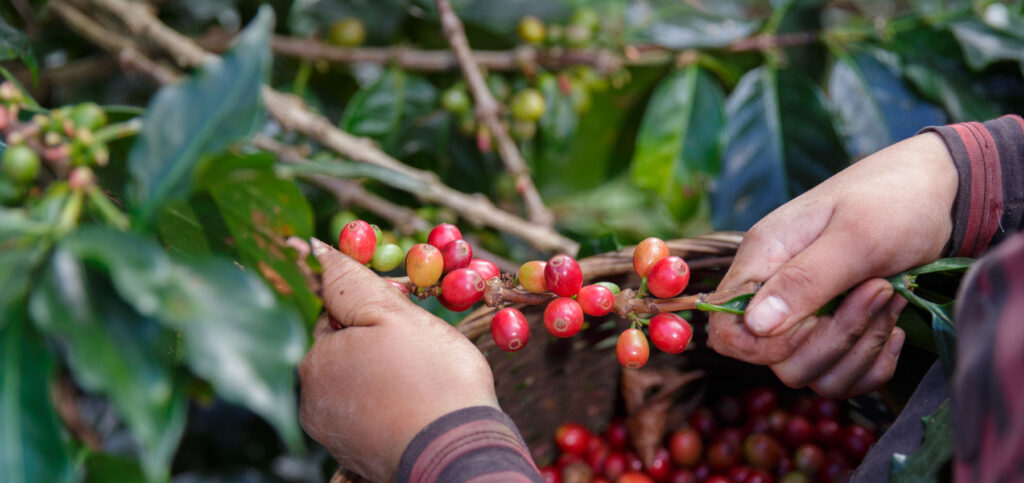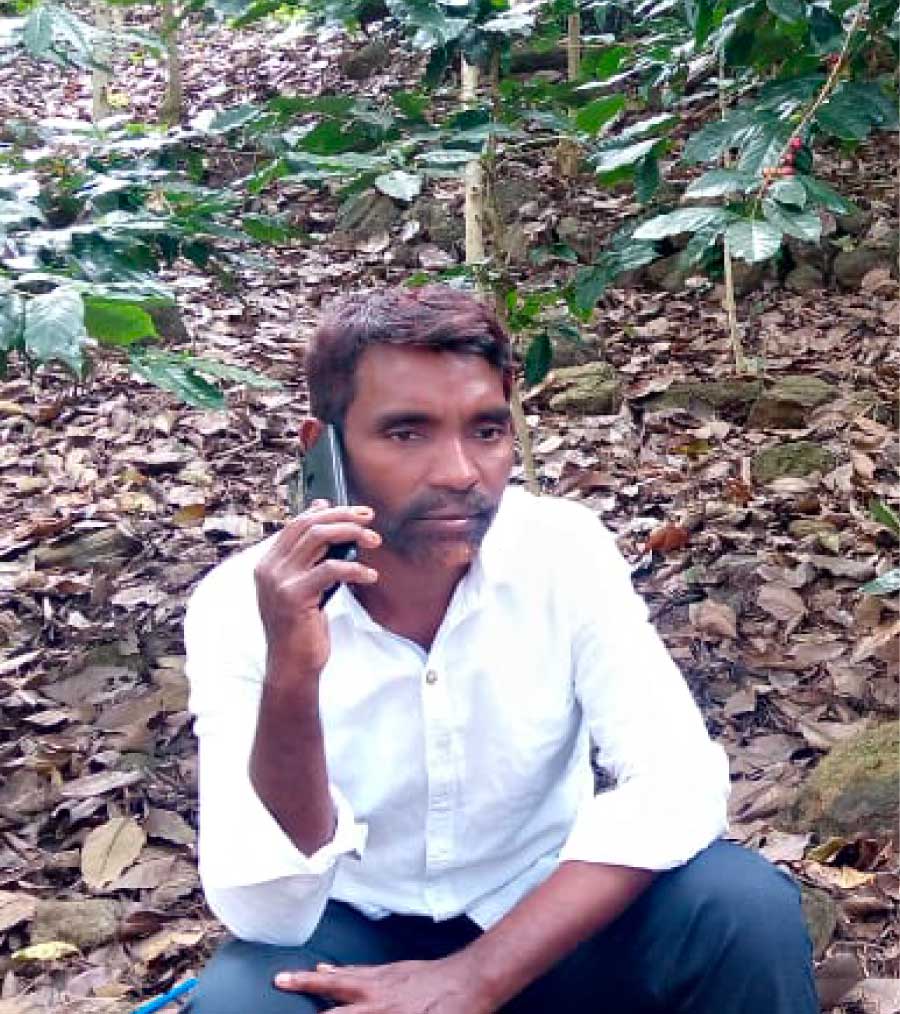Coffee Krishi Taranga: A Digital Agronomist for Indian Coffee Farmers
- August 14, 2024
- 4 minutes read
First published by www.coalitionforsoilhealth.org on July 31 2024. Learn more about PxD’s work on Coffee Krishi Taranga here.
Lankala Visweshwara Rao manages his 4-acre arabica coffee farm in Alluri Sitaramaraju district in Andhra Pradesh state in India. He has faced numerous challenges, including the dreaded white stem borer disease, a significant threat in the country’s coffee-growing regions, including Rao’s coffee farm.

Precision Development (PxD) is committed to helping coffee farmers like Rao cope with the many challenges imposed on them by climate change, by addressing their informational gaps and promoting sustainable agricultural practices.
Since 2023, Rao has used PxD’s Coffee Krishi Taranga service, a voice-based digital agricultural advisory service, which has provided him with insights and proactive measures to remove and dispose of infected plants in a way that will prevent the spread of larvae. Rao has also received actionable advice on other agricultural practices, such as cutting away dead and dried branches that can harbor pests and diseases, and meticulously maintaining drying yards to ensure the quality of coffee is preserved fully throughout the drying process before market sale.
“I have benefited from joining the Coffee Krishi Taranga service, particularly by learning about how to tackle white stem borer disease by removing the infected plant. I learnt about how removing dried branches improves the yield. Additionally, I learnt about maintaining the drying yards. This involves cleaning the yard and checking for cracks. The coffee produced must be dried on these cleaned yards. This ensures that the yield fetches a high price. We hope more farmers in this tribal belt join the Krishi Taranga service and benefit from its useful information, eventually leading to improved incomes.”
“We have been advised to dry the coffee fruit on the drying yards, not on the wet floor or the surface plastered with dung. I have also been sharing information with my fellow farmers on picking the fruit, pulping it into parchment, drying it in the yard, and covering it with tarpaulin to protect it from dew. I was able to fetch higher prices this year compared to the last. Thank you!”
By providing timely and practical agricultural knowledge, the Coffee Krishi Taranga service empowers farmers to implement good agricultural practices (GAP) that improve their crop and soil health, yields, and profits. Soil health interventions are integrated into the service, guiding farmers on practices like crop rotation and diversification, site-specific nutrient management and best practices for organic and inorganic amendments, as well as other measures to combat soil degradation and acidification. Additionally, the service not only delivers customized advice on climate-smart coffee growing practices but also offers advice on spices that are often cultivated alongside coffee, tailored to each farmer’s location. With continued rigorous research, content iteration, and enhanced service delivery, more smallholder farmers like Cheekati Bodi Raj and Lankala Visweshwara Rao can have access to a digital agricultural advisory that is just a message away.
These positive impacts for farmers like Raj and Rao are at the heart of PxD’s Digital Agricultural Advisory Services (DAAS), which deliver tailored digital information to smallholder farmers. With the generous support of the Walmart Foundation, Coffee Krishi Taranga’s impact is now expanding significantly to the broader smallholder farmer community. PxD continues to scale this service across four coffee-growing states in India – Karnataka, Kerala, Tamil Nadu, and Andhra Pradesh – in partnership with the Coffee Board of India. In 2023, this service grew to serve more than 120,000 coffee farmers. While digital agriculture services built and improved by PxD reached over 10 million farmers in 2023 across five countries in Africa and Asia, the organization aims to engage more smallholder farmers from diverse value chains and geographies to benefit from these services. Many of PxD’s services are strategically designed through a “Build-Operate-Transfer” (BOT) model, ensuring that the services are eventually transitioned to governments for long-term financial and operational sustainability.
Looking forward, the PxD team is now prototyping a voice-based high-resolution weather forecasting service for coffee farmers in Karnataka to complement Coffee Krishi Taranga. Stay tuned to our blog posts at www.precisiondev.org for updates on how we scale innovative solutions like these to improve smallholder farmers’ lives.
If you would like to get in touch, please contact info@precisiondev.org.

Stay Updated with Our Newsletter

Make an Impact Today





